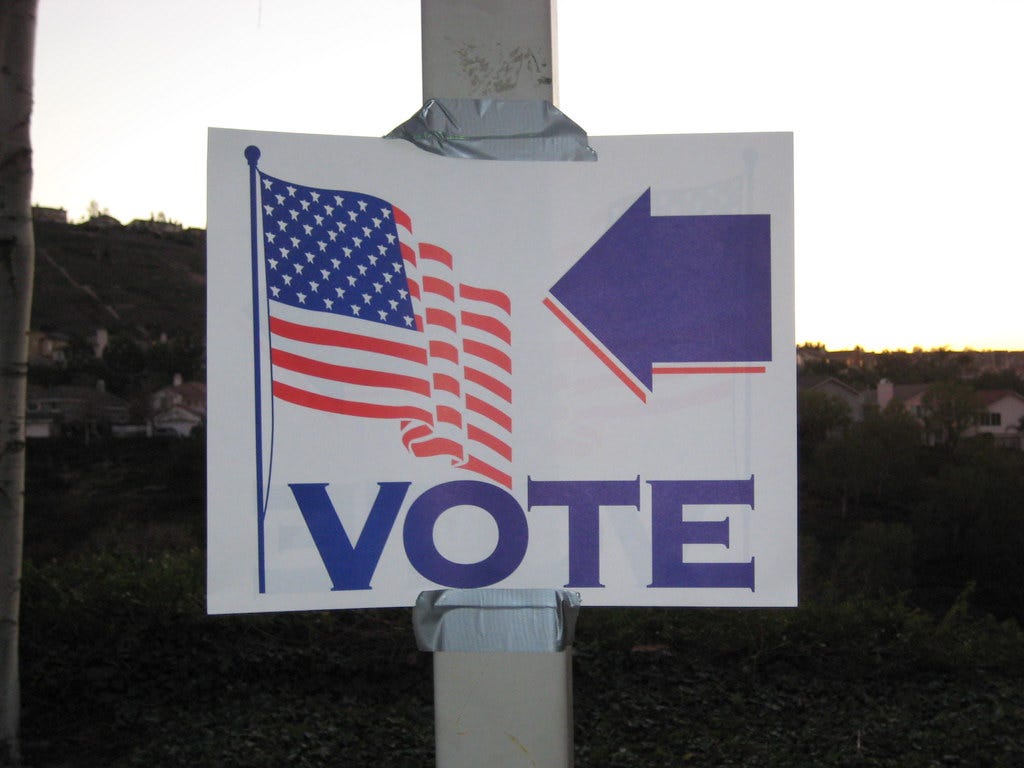Voter ID Restrictions Don't Suppress the Vote, Shows A New Harvard Study
They also don't do anything about fraud. So can we stop obsessing over voter ID?

Last month, I wrote about how President Joe Biden and some of his allies in the Democratic Party and media had a message for the voting public: “Jim Crow is making a comeback.”
That quote comes from a CNN segment that began with a archival footage of an actual minstrel show and went on to highlight GOP-backed legislation across the country that would change the way elections are run.
Biden himself took aim at a new Georgia law that would, among other things, enact new ID requirements for absentee ballot. Biden actually went further than CNN, declaring that this law makes “makes Jim Crow look like Jim Eagle.” He went on to warn that the law is like “Jim Crow on steroids.”
And it wasn’t just politicians or media weighing in. Private sector corporations like Apple, Coca-Cola, and Delta Air Lines took very public stands condemning the law. Major League Baseball moved its All-Star Game and its draft out of the state in response. And we noted at the time how liberals were shaming companies for not getting involved on this issue.
At the time, I wondered if the Democrats were playing a cynical game, deploying fears of a return to some of the worst abuses in modern American history in order to keep their share of minority votes from continuing to hemorrhage, as it did in 2020.
While I imagine many Americans didn’t agree all the way with Biden — surely Georgia in the year 2021 is not going to be more oppressive than Georgia in 1951 — many likely thought that he was warning about very real threats to voter rights.
For years, as Republicans have installed voter ID requirements in state after state, Democrats have protested that these laws suppress the votes of low-income, minority, and young voters, all constituencies that they believe can help them win elections. The GOP has countered that it needs these laws in order to prevent widespread fraud that could corrupt the electoral process. But what if both sides are wrong?
That’s the conclusion of a new study that is forthcoming at Harvard’s Quarterly Journal of Economics. Researchers Enrico Cantoni and Vincent Pons looked at various ID laws implemented between 2008 and 2016, finding that they had “no significant negative effect on registration or turnout, overall or for any subgroup defined by age, gender, race, or party affiliation. These results hold through a large number of specifications and robustness checks.”
Despite the Democrats’ stated worries that these laws reduce minority turnout, the researchers found that “given the complaints of selective disenfranchisement, strict ID requirements do not decrease the participation of ethnic minorities relative to whites.” What about partisan outcomes? The voter ID laws “do not affect the relative vote share of Democratic and Republican candidates either.”
Pons suggests that party mobilization may have offset any impact on voter participation by minorities — as these laws were passed, the likelihood of voter contact by campaigns actually went up:
But if you’re a conservative who thinks that voter ID is essential to stopping fraud, don’t get too excited. The researchers found that strict ID laws had no discernible impact on voter fraud.
Ultimately, the debate over voter ID may be a vote about not much at all because it doesn’t really change things. That’s worth keeping in mind not only here in the United States but in the United Kingdom, which is actively considering ID requirements that the rest of Europe already uses. Maybe instead of endless, hyperbolic fights over a policy that really doesn’t matter, we should start looking for more serious ways to reform our electoral system.
Please help support our work by subscribing to INQUIRE. Get access to subscriber-only posts and more for $6 a month or $60 a year.


